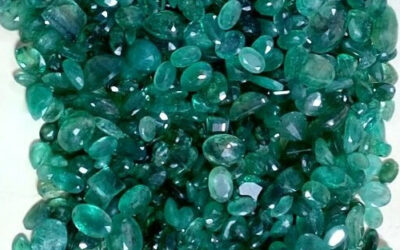Eco-Friendly Options: Exploring Sustainable Epoxy Flooring Solutions

In today’s world, where sustainability is becoming increasingly important, eco-friendly options are gaining traction in various industries. One such area is flooring, where traditional materials often pose environmental concerns. However, with the rise of sustainable practices, alternatives like epoxy flooring are emerging as viable solutions. Let’s delve into the realm of eco-friendly epoxy floor options, exploring their benefits and applications.
Understanding Epoxy Flooring
Epoxy flooring is a popular choice for both residential and commercial spaces due to its durability and aesthetic appeal. It is a type of surface coating that consists of epoxy resin and a hardening agent. When these two components are mixed, a chemical reaction occurs, resulting in a rigid plastic material that bonds tightly to the underlying surface.
The Environmental Impact of Traditional Flooring
Traditional flooring materials such as vinyl, linoleum, and certain types of tile often contain harmful chemicals and are not biodegradable. Additionally, the manufacturing processes of these materials can release pollutants into the environment, contributing to air and water pollution.
Moreover, the installation and maintenance of traditional flooring can involve the use of toxic adhesives and cleaners, further exacerbating environmental concerns. With growing awareness of climate change and environmental degradation, there is a pressing need to explore sustainable alternatives.
Benefits of Eco-Friendly Epoxy Flooring
- Low Environmental Impact: Unlike traditional flooring materials, eco-friendly epoxy flooring options are manufactured using sustainable practices and renewable resources. These materials have minimal environmental impact during production and disposal, making them a greener choice for environmentally conscious consumers.
- Durability: Epoxy flooring is known for its exceptional durability and longevity. Once installed, it can withstand heavy foot traffic, impact, and abrasion, reducing the need for frequent replacements. This durability not only minimizes waste but also reduces the overall environmental footprint associated with flooring maintenance and replacement.
- Energy Efficiency: Some eco-friendly epoxy flooring options incorporate reflective properties, which can help enhance natural lighting in indoor spaces. By reducing the reliance on artificial lighting, these flooring solutions contribute to energy savings and lower greenhouse gas emissions.
- Chemical-Free Formulations: Many sustainable epoxy flooring products are formulated without harmful chemicals such as volatile organic compounds (VOCs) and phthalates. This not only creates a safer indoor environment for occupants but also reduces the release of toxic substances into the atmosphere.
Applications of Eco-Friendly Epoxy Flooring
- Residential Spaces: Eco-friendly epoxy flooring is gaining popularity in residential settings due to its versatility and aesthetic appeal. It can be used in various areas of the home, including kitchens, bathrooms, basements, and garages, providing a seamless and easy-to-clean surface.
- Commercial and Industrial Facilities: In commercial and industrial settings, where durability and hygiene are paramount, eco-friendly epoxy flooring offers an ideal solution. It is commonly used in warehouses, manufacturing facilities, healthcare facilities, and food processing plants, where cleanliness and safety standards are stringent.
- Retail and Hospitality: Retail stores, restaurants, and hospitality venues also benefit from the aesthetic versatility and durability of eco-friendly epoxy flooring. With customizable colors, textures, and finishes, businesses can create unique and inviting spaces while minimizing their environmental impact.
Conclusion
As the demand for sustainable building materials continues to grow, eco-friendly epoxy flooring options are poised to become the preferred choice for environmentally conscious consumers and businesses alike. With their low environmental impact, durability, and versatility, these flooring solutions offer a win-win scenario, combining performance with sustainability. By embracing eco-friendly alternatives like epoxy flooring, we can take significant strides towards creating healthier and more sustainable built environments for future generations.
For more information and sustainable epoxy floor solutions, visit EndSlips.com.






